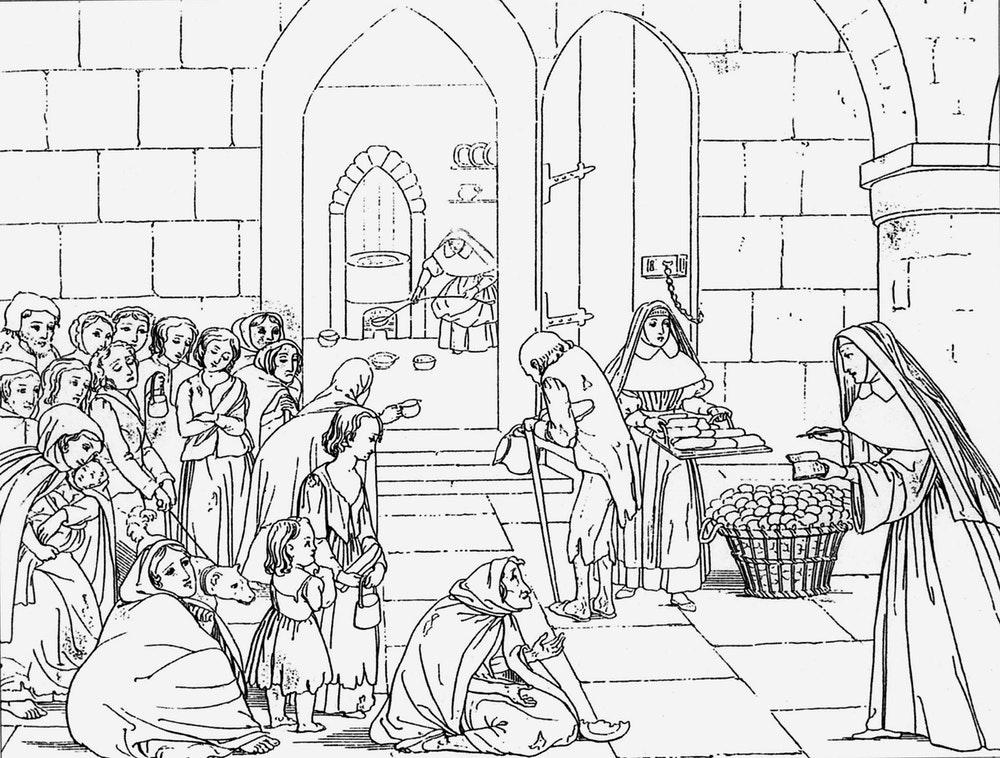In this year’s Lenten reflection series, seven sisters offer their personal stories and insights on each of the Corporal Works of Mercy and how acts of mercy can have a profound impact on the lives of our sisters and brothers. Accompanying these reflections are line drawings by Sister Mary Clare Agnew, a contemporary of Catherine McAuley, which illustrate the Sisters of Mercy in ministry in 1830s Ireland. The reflection series also includes reflections for Ash Wednesday, Palm Sunday, Holy Thursday and Easter.
By Sister Caroline Tweedy, Executive Director, St. John’s Bread & Life, Brooklyn, New York
As a child I was always interested in the Bible stories about feeding the hungry. I grew up in a family where my grandmother owned a bakery/restaurant and what was left over every day was quietly distributed to those who were in need. This simple act of kindness continues to remind me of my obligation to help feed others.
As a Sister of Mercy, the Corporal Works of Mercy have always been the most outward sign of what I am reminded to do in the world—visit the sick, bury the dead, visit the imprisoned, clothe the naked, shelter the homeless, give drink to the thirsty and feed the hungry.

Today, food insecurity, homeless and mental health care are at the top of everyone’s agenda. I ask myself why did it take a pandemic to bring these issues to the forefront? Don’t we all deserve to have food on our tables, decent jobs that allow us to balance work and family, safe shelter and reasonable mental health support? Aren’t we all called to walk with those who are fragile among us and protect those who cannot protect themselves? Feeding the hungry is not only about providing healthy, nutritious food, it’s about being available to one another as we struggle through COVID.
When I walk through the dining room, the triptych tells the story of the fishes and loaves and is a constant reminder of what we need to do every day—feed those who hunger in body, mind and spirit. To walk with the disconnected and broken among us. To give hope to one another. So, the question for me is, what will I do this Lent to make a difference? Will I take the risk to fight for those whose voices go unheard? Will I find ways to engage more with those who feel disconnected? Can I rattle the purse strings of those in government who have the power to create sustainable longterm solutions to these life-altering problems? Will I challenge others around me to do the same?
In the spirit of Catherine McAuley, let’s strive to do what we can, while we can for those we can.